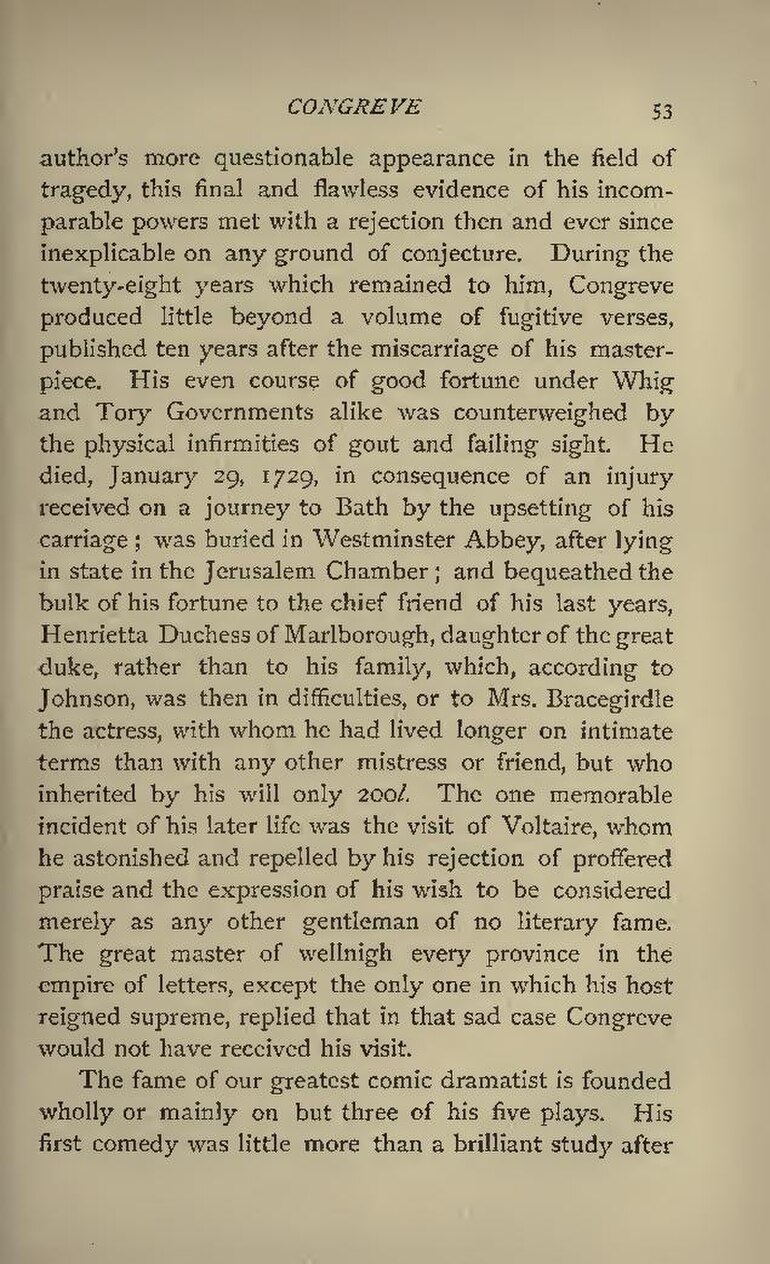author's more questionable appearance in the field of tragedy, this final and flawless evidence of his incom- parable powers met with a rejection then and ever since inexplicable on any ground of conjecture. During the twenty-eight years which remained to him, Congreve produced little beyond a volume of fugitive verses, published ten years after the miscarriage of his master- piece. His even course of good fortune under Whig and Tory Governments alike was counterweighed by the physical infirmities of gout and failing sight. He died, January 29, 1729, in consequence of an injury received on a journey to Bath by the upsetting of his carriage; was buried in Westminster Abbey, after lying in state in the Jerusalem Chamber; and bequeathed the bulk of his fortune to the chief friend of his last years, Henrietta Duchess of Marlborough, daughter of the great duke, rather than to his family, which, according to Johnson, was then in difficulties, or to Mrs. Bracegirdle the actress, with whom he had lived longer on intimate terms than with any other mistress or friend, but who inherited by his will only 200l. The one memorable incident of his later life was the visit of Voltaire, whom he astonished and repelled by his rejection of proffered praise and the expression of his wish to be considered merely as any other gentleman of no literary fame. The great master of wellnigh every province in the empire of letters, except the only one in which his host reigned supreme, replied that in that sad case Congreve would not have received his visit.
The fame of our greatest comic dramatist is founded wholly or mainly on but three of his five plays. His first comedy was little more than a brilliant study after
